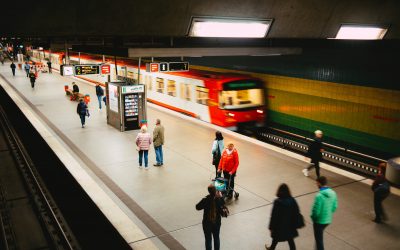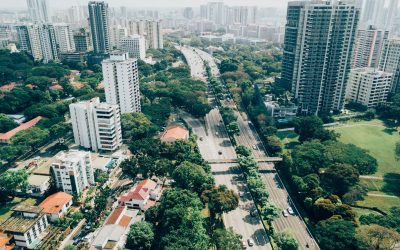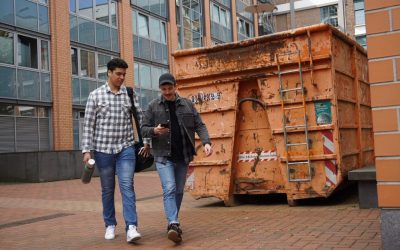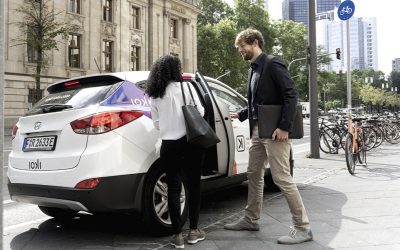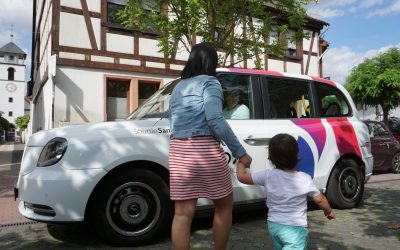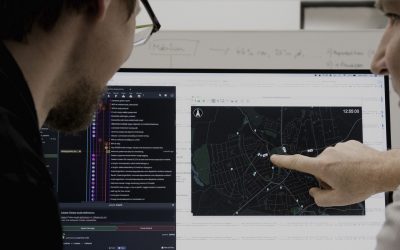Mobility is often still a resource-intensive undertaking – in every respect: Too many cars on the road cause a high level of environmental pollution, loosely set timetables mean an immense loss of time and excessively large containers and empty runs – especially in rural areas and at off-peak times – take their financial toll.
Corona crisis: A gamechanger during climate change?
Better air, blue skies and significantly fewer vehicles on the roads: The Corona crisis has given our planet a little well-earned rest. This is because of the positive effects in terms of lower CO2 emissions during the pandemic. A recent study shows that the restrictions on public life have also reduced global emission numbers drastically.
Employee mobility rethought
We are currently observing a greater change in the world of work than ever. While yesterday home office was an exception, today we work smoothly in virtual teams. At the same time, our approach to mobility is changing as well. In times of uncertainty, we need reliable and needs-based solutions that get us safely through (working) everyday life more than ever. This is a requirement that future-oriented employers have not only recently started to meet.
Mobility in Spain
Mobility is not only a prerequisite for economic growth, innovation and trade, but also for the personal well-being of people. It opens opportunities both for individual transport and for the community as a whole and is a global phenomenon with a local dimension. One mobility solution does not exist. In rural areas, for example, completely different mobility requirements can be identified compared to urban agglomerations. If we draw the line a little wider and look at mobility in an international comparison, it becomes clear that economic, cultural and geographical differences have a significant influence on our understanding of mobility.
Is commuting still up-to-date?
Most of us are familiar with it: The stress factor of commuting to work. Many people currently do without this trouble due to flexible home office solutions but un-der normal circumstances this is often the time-consuming and nerve-wracking part of the working day. Over 45 percent of employees commute to work every day.
More efficiency through on-demand transport
People are more often online and more connected than ever – many companies take advantage of this situation. In this context, the usage of data as a basis for decision-making is also increasing and there is a growing consideration for the individual concerns of each and every person: The focus on the consumer is growing steadily and thus becoming an important part when it comes to product design. Inevitabily, mobility service providers have to (and should want to) keep up with this trend.
Perspectives from Professor Stephan Rammler
Stephan Rammler is Professor of Transportation Design & Social Sciences at the University of Fine Arts in Braunschweig and since October 2018 Scientific Director of the IZT – Institute for Future Studies and Technology Assessment. He, is also the founder of the Institute for Transportation Design (ITD) with mobility and futurology as its focal points. He received the 2016 ZEIT Prize “Courage for Sustainability” for his work on environmentally friendly transportation, in the category Knowledge.
We spoke with Professor Rammler about researching the future, the concept of mobility in general, and current events and their significance for a possible new understanding of mobility.
What are our neighbours up to? – New Mobility in Europe
Not only in Germany is the mobility of the future a central topic which is constantly gaining knowledge and alternative solutions. Looking over to our neighbours such as Sweden or the Netherlands shows that new mobility concepts are developing and establishing themselves in different ways in Europe.
Mobility is a matter of mind #stayconnected
We are always on the run: After work to our favorite place in the city, in the middle of the week to a business appointment once across the republic, on the weekend a short trip to a European metropolis and in the Easter holidays family vacation in the mountains…
City of the future: What will our mobility look like?
Green, environmentally neutral and connected – these are the demands on the city of tomorrow. At the same time, people’s quality of life is to be improved and the ecological footprint reduced. Experts from all over the world are thinking about the so-called Smart Cities. In all scenarios, one thing remains clear: everyone wants to remain mobile.
Call-collecting taxi – A new approach to proven concepts
What began in 1977 in Friedrichshafen is today generally known as on-demand transport: In a large-scale experiment, the people of Friedrichshafen were the first in Europe to look for a solution to adapt the existing public transport system to meet demand – thus heralding the birth of the Rufbus.
It’s all about data: Interconnected mobility data for more customer focus
Whether socio-demographic or geographical data, information from travel diaries from household surveys or flows of people from mobile phone data – mobility-related data and information are available in large quantities in times of digitisation, but are still too rarely used to develop user-centred services and offers.
Newest article
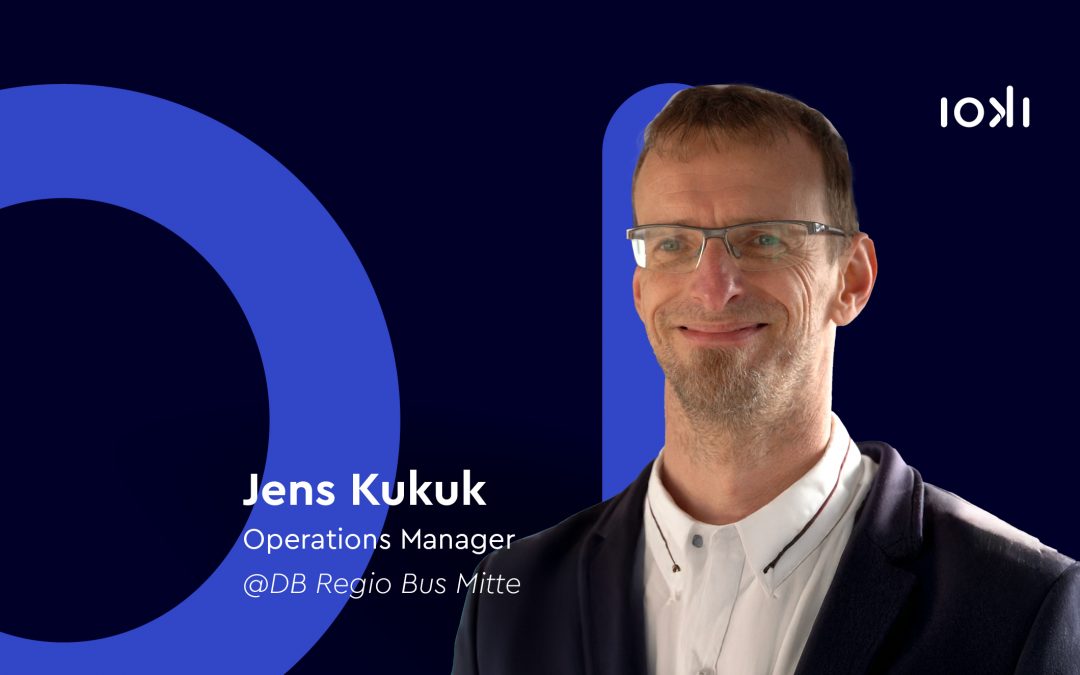
Perspectives from Jens Kukuk, Operations Manager at DB Regio Bus Mitte GmbH
Simple, flexible, dependable – high demands are placed on both the control centre and the drivers in bus operations. It is helpful when you can count on reliable software for route management and navigation. Since December 2023, our ioki Route software has been in operation in Speyer. We spoke with Jens Kukuk, Operations Manager at DB Regio Bus Mitte GmbH, about their experience with ioki Route. He explains how the software has changed the daily working routine of drivers on their bus routes and shares his insights from over a year of practical implementation.

